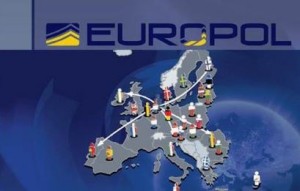
 More than 60 minors were identified as potential victims of human trafficking during joint action days
More than 60 minors were identified as potential victims of human trafficking during joint action daysEuropol, Portugal, Spain and the United Kingdom coordinated a Europe-wide joint action day targeting child trafficking. The operation, also supported by Frontex, took place between 5 and 11 October 2020 and involved 12* countries.
A wide range of law enforcement authorities including police, immigration and border control agencies, transport police, social assistance and child protection services and labour inspectorates participated in the joint action.
388 ARRESTS AND 249 POTENTIAL VICTIMS
The actions led to 388 arrests, 19 additional suspects identified and 40 new investigations initiated. Overall, 249 potential victims of human trafficking were identified, 61 of which were confirmed to be minors and the ages of 107 victims have not yet been determined.
The involved national authorities focused on border crossings and main transport hubs to identify potential victims and suspects of human trafficking. Each country adapted the activities according to the forms of child trafficking which were nationally prevalent.
5 380 OFFICERS CHECKED:
- 59 071 people;
- 1 529 locations;
- 15 923 vehicles;
- 39 860 documents.
UNDERREPORTED CRIME AFFECTING THE MOST VULNERABLE
Human traffickers target the most vulnerable groups and children are among them. Child trafficking remains, however, underreported. Minors are trafficked for sexual and labour exploitation. Criminals abuse children while forcing them to beg or commit crimes such as smuggling of illegal goods and petty crimes.
Within the EU, children are mostly trafficked by their relatives. These criminal organisations, connected through large clan networks, operate in several countries and move the children on a rotational basis. They abuse them in sexual exploitation, forced begging and forced criminality schemes. Trafficked minors from non-EU countries are also often victims of migrant smugglers collaborating with adults who accompany the children while pretending to be their relatives or legal guardians.
*Participating countries: Austria, Belgium, Croatia, Cyprus, Germany, Lithuania, Portugal, Romania, Slovenia, Spain, the Netherlands and the United Kingdom
Europol coordinated the action days and facilitated the information exchange between the participating countries. Europol provided analytical and operational support 24/7 and facilitated the real-time exchange of communication between the participating authorities.





